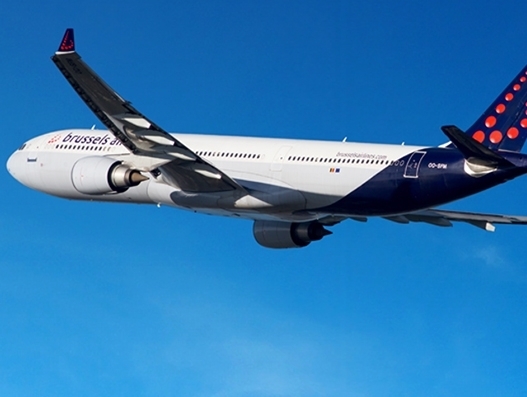
Brussels Airlines makes good start to 2018
March 15, 2018: Despite facing pressures, Brussels Airlines witnessed a positive trend in terms of revenues, passenger and cargo volumes. The passenger growth of 15 percent and 16.5 percent in respectively January and February, has help Brussels Airlines to further reinforce its market position. The overall costs per seat were also lower than the corresponding […]

March 15, 2018: Despite facing pressures, Brussels Airlines witnessed a positive trend in terms of revenues, passenger and cargo volumes.
The passenger growth of 15 percent and 16.5 percent in respectively January and February, has help Brussels Airlines to further reinforce its market position. The overall costs per seat were also lower than the corresponding period last year, thanks to the revenue yield from investments made in 2017.
For Brussels Airlines, 2017 was witnessed positive financial results, thanks to a highly competitive environment and strategic investments.
Despite challenging market environment in 2017, Brussels Airlines continued on its growth path, thereby booking a positive result for the third consecutive year.
The airlines’ seat capacity increased by 11 percent compared to 2016, mainly due to the European network, following the phase-out of the AVRO RJ100 fleet (100 seater), and its partial replacement by bigger Airbus A319/320 (140/180 seats).
The increased capacity on the long-haul sector yielded positive results, thanks to the addition of an Airbus A330, which was mainly deployed on its new Mumbai route.
Additional seats resulted in a 17.3 percent increase in passenger growth, which allowed Brussels Airlines to surpass the nine million passenger mark for the first time in its history, which is one million above the original projections made in 2018, which led to a seat load factor of 78.8 percent.
OVERALL GROWTH OF BRUSSELS AIRLINES
EUROPE: The integration of Thomas Cook Airlines in Belgium, and two of its Aribus A320 aircraft, helped Brussels Airlines to reinforce its position in the important leisure segment. The close cooperation with tour operator and Thomas Cook Belgium allowed Brussels Airlines to add 26 new destinations to its existing leisure network, which further improved its productivity. The integration is expected to further increase Brussels Airlines’ customer base by additional one million passengers. This will contribute substantially to its profitability in the highly competitive European network.
The increase in seat capacity on the European network has helped Brussels Airlines to increase its passenger numbers and grow its market share. It created an important pressure on its yield, however, it was subsequently reinforced by the capacity increase related to the fleet alignment with the A320 family in a market that was still in a recovery phase after March 22 terrorist attack, which impacted the profitability in the early months of 2017.
As a consequence, its full profit effect of the up-gauge from Avro to Airbus is expected to be visible in 2018.
AFRICAN CONTINENT: With a strong performance, despite some political crises, Africa remained the stronghold of Brussels Airlines in 2017. For the first time, the airline surpassed one million passenger mark on the African network. It corresponded to an increase of 14 percent, resulting in an average seat load factor of 87 percent, which is a record for Brussels Airlines.
Brussels remained as a real hub for African passengers, with 65 percent passengers connecting to Brussels Airlines destination in Europe and the US. The cargo activities of the airline contributed to the positive results in Africa.
US & CANADA: In the North Atlantic sector, Brussels Airlines focused on the performance of its three destinations, including New York, Washington and Toronto.
During the first quarter of 2017, the traffic from the US to Belgium suffered from the terror level 3, which impacted travel from the US via Belgium. It’s was only in the second quarter that the traffic started to recover. Overall passenger number grew by 13.7 percent.
Brussels Airlines expects a further improvement in the North Atlantic performance, thanks to the recently signed sales agreement with the Lufthansa Group.
India: Launched in April last year, Brussels Airlines’ first Asian destination, Mumbai reached an average seat load factor of 75 percent, and financials were in sync with its expectations. India is an important economic partner for Belgium, with a substantial leisure potential.

